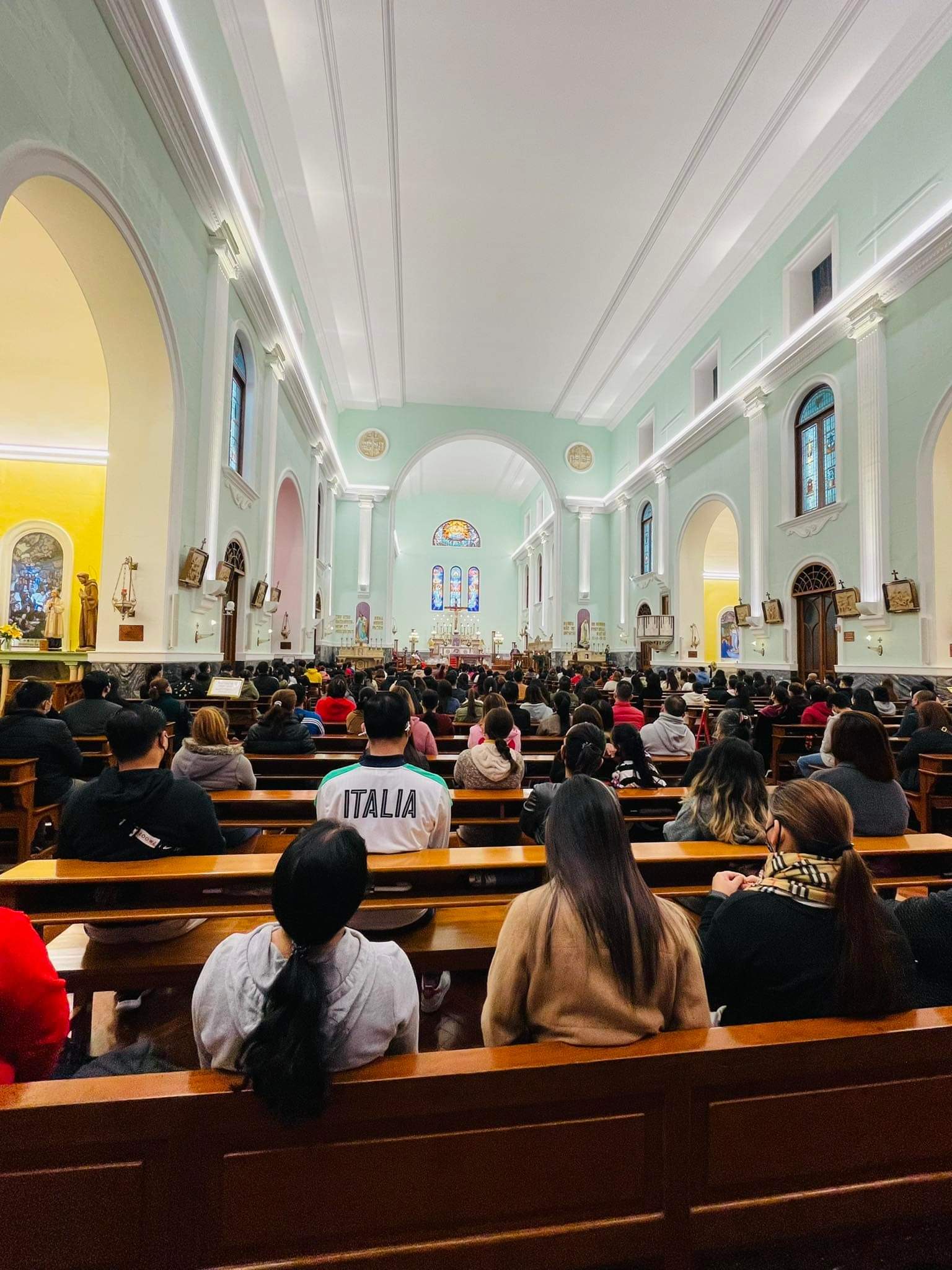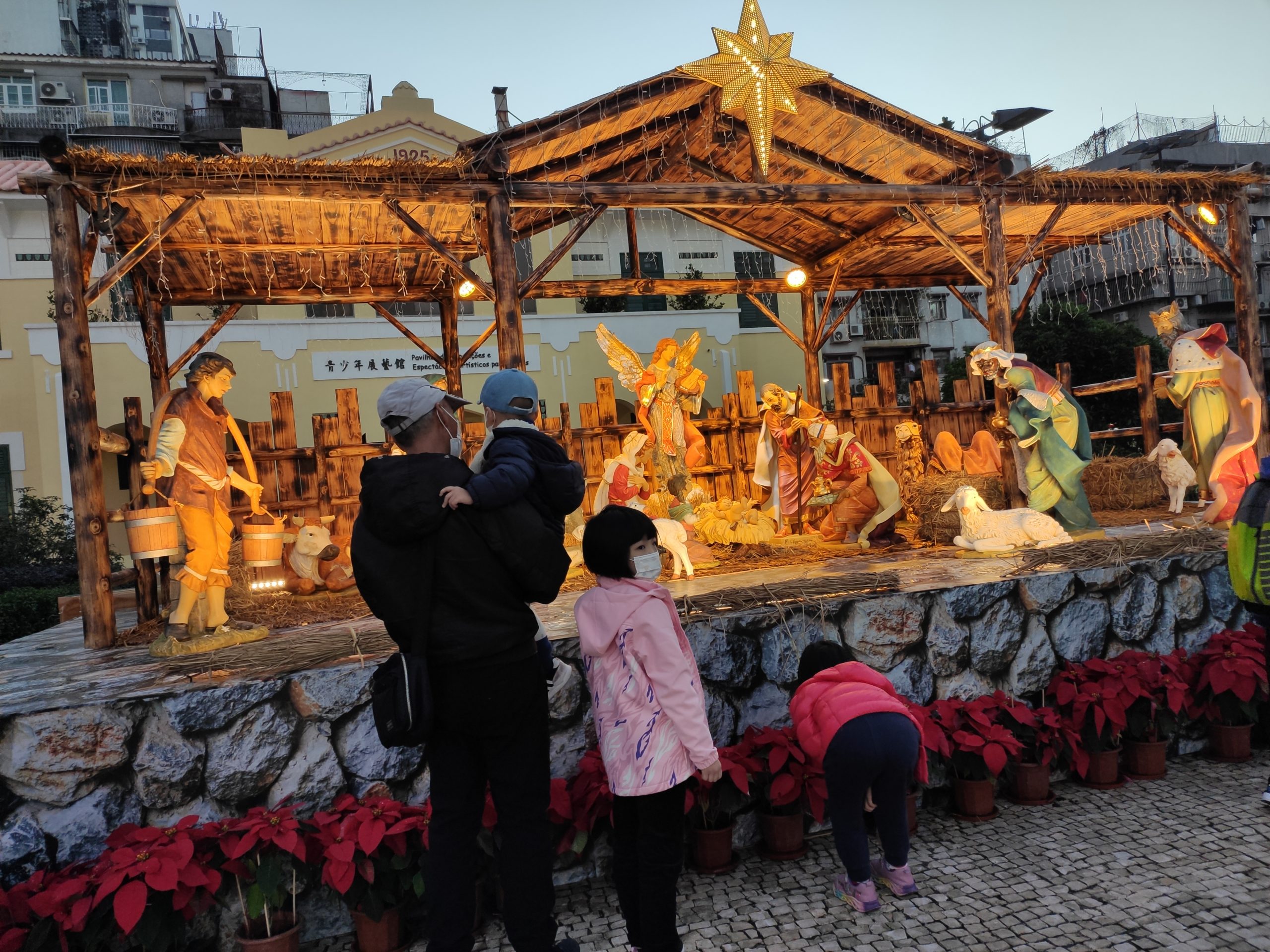(Main image) A Nativity scene at the Cathedral Square in Macau. (Photo: Fr Jose Mario O Mandia)
O Clarim News Desk (English)
When people hear about the “Twelve Days of Christmas” or sing the song by that title, they often think it refers to the last 12 shopping days before Christmas. In most Christian traditions, however, the Christmas season properly begins with Christmas Eve, after sunset on December 24, while the “Twelve Days of Christmas” refers to the period from the 25th of December to the 5th of January. For Christians, Christmas is not just a single day (December 25), but an extended liturgical season of joy and celebration, involving many different symbols and traditions, special music, and activities, which vary significantly among different countries and cultures.
The Catholic Church recognizes the enormity of the Christmas story. The lectionary, or the book of the readings for the Mass, is set with three readings for each Sunday during the liturgical year. Hence churchgoers encounter the same readings in each liturgical cycle. But not so during Christmas! The liturgical celebration of the Lord’s Nativity has many variables and components. There are four particular timeframes during which Mass might be celebrated in observance of this great feast: a vigil, a Mass at night, a Mass at dawn and a Mass during the day. Each of these Masses have their own unique prayers and readings.
There is so much to say about the importance of the Incarnation. The Church does not want us to miss a thing about this tremendous act of unconditional love. Matthew’s Gospel tells the story from Joseph’s view, Luke’s Gospel is from Mary’s view and John’s Gospel is from the view of the early Christian community, after some years of contemplating the mystery.
It is important also to note that on Christmas, the faithful are all required to genuflect or kneel during the Creed at the words relative to this central mystery of Christian faith, “and by the Holy Spirit was incarnate of the Virgin Mary and became man.” This helps us keep our hearts and minds focused on what the feast is all about. By genuflecting during the Creed, Catholics are making a physical act of touching the ground, reminding them of the reality of the Incarnation, where God “came down” and walked among us. Genuflection is a physical reminder of a spiritual truth, awakening our soul to the words we are saying at Mass.

We call Jesus “Emmanuel” – God is with us – and this story reminds us of all that the name means. The rest of the story in Matthew’s Gospel tells us of Joseph and his pondering of the work of God. We often say how hard it must have been for Mary to understand what was happening to her, but how did any of this make sense to Joseph? Believing this intervention of the Holy Spirit must have made no sense to him, even if he was a faithful Jew who longed for the Messiah. The manger we see in all churches in Macau and in the main parks, thoughtfully and gently brings us back to the story of the first Christmas.
In recent years, various foreign workers came to Macau bringing with them not only their cultural traditions but also their faith traditions. Filipinos in Macau, who are mostly Catholics, have brought with them their most cherished celebration of the Christmas novena known as Simbang gabi. Today, there are three parishes celebrating this Filipino Christmas tradition in Macau and a good number of locals are joining in.
Filipino Bishop Ruperto C. Santos of Balanga explains the Simbang gabi: “It is an act of sacrifice as Mass goers forgo extra sleep and rest. We offer nine holy Masses at the break of dawn. We pray more and fervently often in the company of our family and friends. Simbang Gabi leads us to spend extra time for God with our family and sacrifice personal comforts for God. Attending the Masses is a clear manifestation of the Filipinos’ strong faith in God.”
While exchanging presents on December 25 is a relatively recent invention, many Christians have embraced it, not only recalling the gifts of the Magi, but also honoring the greatest gift given to humanity: Jesus Christ. Indeed, God gave us the perfect gift of His Son. The basic reason we offer Christmas gifts to each other is to honor and reflect on the only perfect gift ever offered — the gift of God through a baby named Jesus.
Pope Francis, during his recent general audience at the Vatican, lamented that today, especially in Europe, there is a distortion of Christmas, which in the name of a “false respect”, side-lines faith and eliminates every reference to the birth of Jesus. The Pope stressed that without Jesus there is no Christmas. The lights, sounds, and various local traditions, including food, all create the atmosphere of a true Christmas, only if Jesus is at its center. Because of who God is, we have the assurance He will continue to bless us with His gifts. Pope Francis explained further that we can welcome God’s gift of Jesus by making a free gift of ourselves to those we encounter. This, the Pope reminded everyone, is why we exchange gifts. With the incarnation of the Son, he said, God has opened the way to new life that is based not on egoism but on love.


 Follow
Follow


